Clinical waste collection
Get a FAST & FREE quote for clinical waste collection
Just enter your business postcode…
Get a FAST & FREE quote for clinical waste collection
Just enter your business postcode…
Start saving now
Businesses in healthcare, dentistry, beauty, and other sectors produce clinical waste that must be handled and disposed of safely. Our reliable clinical waste collection service gives you peace of mind and lets you focus on running your business.
Here’s how to get started:

Enter your postcode above and tell us about your clinical waste collection needs, including the type of waste and how often you need collections.

Our experts will review the details and prepare a bespoke quote based on your collection frequency, bin size requirements, and location.

Once you’re happy with the quote, sign your clinical waste collection contract to activate your service and schedule your collections.
Handling clinical waste doesn’t need to be time-consuming or expensive. Our clinical waste collection service connects you with trusted providers to ensure your business stays compliant and gets great value.
Start today by entering your postcode above to find a reliable clinical waste collection service in your area.

We provide clinical waste collection across the whole of the UK, so businesses of all sizes can access dependable, professional services wherever they’re based.

We only work with experienced and reputable clinical waste providers, so you can be confident your waste is handled safely and in line with all regulations.

Our team prepares bespoke quotes based on your waste needs, helping you get the best value without compromising on reliability or compliance.
Using a professional clinical waste collection service gives you peace of mind that your waste is being handled safely, efficiently and in full compliance with the law. Here are the key benefits:

Trusted clinical waste providers ensure your business meets all legal and healthcare-specific waste requirements, including documentation in line with NHS guidelines like HTM 07-05.
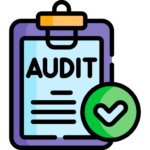
Before collections begin, providers can carry out a pre-acceptance clinical waste audit, to assess your waste types and volumes. This helps ensure your clinical waste is managed correctly from day one.
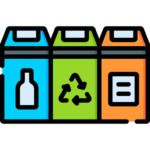
You’ll be supplied with the right clinical waste bins, bags and containers, all clearly labelled to help your team separate waste types safely and correctly.
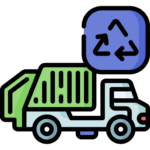
Clinical waste is collected using dedicated vehicles that operate on regular schedules. These fleets transport waste to authorised treatment or energy recovery facilities.

Most clinical waste is safely incinerated, turning it into renewable energy in a controlled environment. This protects the environment while ensuring full legal compliance.

Our providers offer on-site staff training and support to help you reduce waste and improve handling, all aligned with the waste hierarchy and best practice guidelines.
Clinical waste is defined under the Controlled Waste Regulations 2012 as waste produced from healthcare activities that may pose a risk of infection or contain hazardous substances. This includes:
Here is a summary of the waste classification codes associated with the UK healthcare sector.
| Waste Code | Description |
|---|---|
| 18 01 01 | Sharps (except 18 01 03) |
| 18 01 02 | Body parts and organs including blood bags and blood preserves (except 18 01 03) |
| 18 01 03 | Wastes whose collection and disposal is subject to special requirements in order to prevent infection |
| 18 01 04 | Wastes whose collection and disposal is not subject to special requirements in order to prevent infection (for example dressings, plaster casts, linen, disposable clothing, diapers) |
| 18 01 06 | Chemicals consisting of or containing hazardous substances |
| 18 01 07 | Chemicals other than those mentioned in 18 01 06 |
| 18 01 08 | Cytotoxic and cytostatic medicines |
| 18 01 09 | Medicines other than those mentioned in 18 01 08 |
| 18 01 10 | Amalgam waste from dental care |
The Environment Agency requires all clinical waste producers to complete a valid clinical waste audit before waste collection begins. This audit helps your provider identify the waste types you generate and plan the right storage, collection, and disposal methods. All trusted providers we work with include a pre-acceptance audit as part of their onboarding process.

There are three main ways to carry out a clinical waste audit:
Self-audit: Small clinics can complete an online audit form, which is reviewed remotely by a waste specialist.
Provider-led audit: Your waste provider can conduct the audit on-site during setup.
Independent audit: Larger facilities may use a specialist audit firm for an annual review.
Your provider will recommend the right type based on the size and complexity of your site.

A clinical waste audit assesses:

Clinical waste audits must be conducted at least as frequently as:
Every year: Medical practices producing over 5 tonnes of waste
Every two years: Dentists, vets, or labs producing under 5 tonnes
Every five years: Other small producers
Any time: When on-site practices change significantly
Proper clinical waste bins are essential for safe storage and legal compliance. NHS guidelines recommend clear labelling, colour coding, and secure storage before collection. Here’s what you need to know:
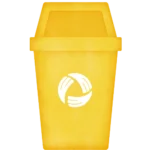
Use small clinical waste bins to safely collect waste where it’s produced, such as treatment rooms or wards.

Once collected in smaller bins, clinical waste must be stored in a designated secure area that is:
Healthcare providers are legally responsible for correct storage, packaging and labelling before handover to a licensed waste carrier.
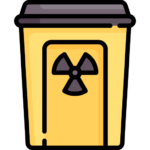
Your clinical waste provider will supply large commercial waste bins for each category of waste you produce. These bins must be:
Waste providers are required by law to refuse collection if bins are not labelled or stored properly.
We help healthcare businesses across the UK arrange safe, compliant clinical waste services through trusted providers. Here are some of the most popular locations for clinical waste collection:

Get fast, compliant Manchester commercial waste collection for sharps, pharmaceutical and infectious waste. Ideal for clinics, dentists and care homes.

Our trusted providers deliver reliable Cardiff commercial waste collection for all types of clinical waste, from anatomical to cytotoxic materials.

We support healthcare businesses with flexible Leeds commercial waste collection plans, all fully compliant with HTM 07-05 and local regulations.

Need trusted Liverpool commercial waste collection for your practice? We’ll connect you with licensed providers for safe and secure clinical waste disposal.

Efficient and affordable Birmingham commercial waste collection for healthcare providers across the city, from small clinics to large hospitals.

Arrange dependable Bristol commercial waste collection for clinical waste, with secure containers, regular pickups, and full legal compliance.
When clinical waste is collected from UK businesses, your provider will issue a waste transfer note for compliance and traceability. Licensed waste firms then dispose of the waste using one of the following approved methods:

Most clinical waste is safely incinerated at high temperatures in energy recovery facilities. This process meets Environment Agency standards and allows energy to be recovered from suitable waste types.
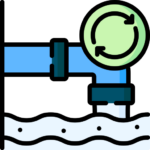
Some liquid clinical waste can be disposed of via the sewer system, but only with the correct trade effluent consent from your local wastewater company.

Landfill is used as a final option where incineration or sewage disposal isn’t suitable. Only certain non-recoverable clinical waste types are sent to landfills, in line with strict disposal regulations.
Our commercial waste experts answer those commonly asked questions regarding clinical waste collection.
The proper disposal of clinical waste is crucial for several reasons, but primarily, it safeguards healthcare workers, patients, and the wider community from infections, injuries, and diseases. Clinical waste frequently contains potentially harmful microorganisms that can propagate disease if not managed correctly.
The comprehensive laws and regulations governing the management of clinical waste are designed to protect healthcare workers, the community, and the environment from the risks associated with poorly managed clinical waste disposal.
The clinical waste collection providers we collaborate with are all obligated to comply with the waste hierarchy, which aims to minimise the use of landfills in clinical waste disposal.
Recently, waste disposal providers have made significant efforts to reduce carbon emissions associated with clinical waste by utilising energy recovery facilities more extensively.
Clinical waste disposal in the UK is governed by several regulations, including the Environmental Protection Act 1990, the Hazardous Waste Regulations 2005, and the Controlled Waste Regulations 2012.
These laws require healthcare businesses to correctly classify, store, and dispose of clinical waste using licensed carriers. To remain compliant, you must also keep records such as waste transfer notes and carry out clinical waste audits.
Clinical waste collection is regulated by the Environment Agency in England, Natural Resources Wales, the Scottish Environment Protection Agency (SEPA) and the Northern Ireland Environment Agency (NIEA).
These bodies ensure that waste carriers, treatment facilities, and producers meet legal requirements around waste handling, storage, and disposal.
Yes, if your business generates needles, syringes, or any items that can puncture the skin, you are legally required to use a dedicated sharps bin.
These bins must be rigid, puncture-proof, and clearly labelled. Sharps waste is classified as clinical waste and must be collected and disposed of by a licensed provider.